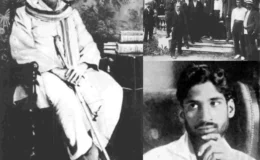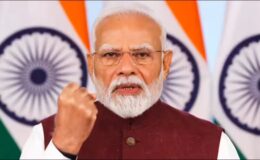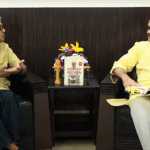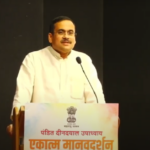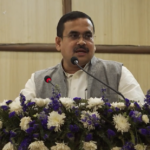Intellectual Dilettantism at India’s Expense Must Stop
- By : Anirban Ganguly
- Category : Articles
When Nobel Laureate Professor Amartya Sen, Chancellor of the supposedly modern version of the Nalanda University, accuses the Government of India of interference in education, especially in the context of the Nalanda University, he is essentially declining to be accountable to the people of India who are the principal contributors of this project.
The label international, at least in the Indian educational context, whatever may be Prof. Sen’s understanding or interpretation of it, does not entail unbridled and unaccounted authority over the shaping or the directing of destinies of our institutions.
The nomenclature “international” in the context of Indian education is being increasingly seen by a section in the academia, a section which is mostly based abroad and with no known commitment or responsibility towards India’s past or present, as a cover to indulge in intellectual dilettantism at expense of the Indian system and Indian taxpayer’s hard-earned resources.
While the hallowed and plentiful environs of Harvard and Cambridge may encourage and patronise such a dilettante spirit, sustaining and celebrating those who never tire of conjuring and expanding faultlines of Indian society, the Indian system, facing an educational challenge of various dimensions, can hardly afford the expensive intellectual adventurousness that Prof. Sen and his ilk so appreciatively encourage and would like to indulge in here.
A Nobel may have transformed Prof. Sen into a global philosopher and citoyen du monde; it does not, however, entitle him to coerce and push through, by stringing a series of unsupported accusations, a change of system that is detrimental to the health of the nation—both in terms of education and security. Of course, Prof. Sen and the governing board of the Nalanda University, filled to the brim with his selections and intellectual disciples, have a lot to answer in terms of the non-achievements of landmarks in bringing the project to fruition.
A look at a few of these may bring some perspective in the discussion. The first of these is the lack of international support for the university despite Prof. Sen’s supposed high moral standing in the international academic community. The Nalanda governing board has been incapable of attracting any international donations worth the name, and the project continues to be dependent on the support of the Government of India. Neither have the majority of Asian countries, countries which had civilisationally established scholarly links with the ancient and original Nalanda, have even been invited or involved in the project.
Despite spending Rs 1,71,11,303 in five meetings, mostly in foreign locales, between July 2007 and February 2009, the governing board, then known as the mentor’s group, never submitted a report nor did it achieve any breakthrough in terms of infrastructure and investments. Under Prof. Sen’s chancellorship, all that the Nalanda University has really achieved is an architectural monstrosity of half a building and a barbed wire fence around the periphery of the campus.
The selection of the Vice-Chancellor was done at Prof. Sen’s behest bypassing all stipulations laid down by the University Grants Commission—the “international” cloak was aggressively used in such cases, the fixing of “international” salaries too was done much in the same manner. The recruitment of faculties then as now continues to be done in an opaque manner, otherwise how does one explain the hiring of a professor, formerly an anthropologist from Christ Church with a specialisation in Rajasthani folk literature, to the historical studies department of Nalanda?
These are a few examples—the tip so to say. A detailed performance audit may truly reveal how far Prof. Sen has actually remained loyal to his professed ideals and commitment to India’s wellbeing.

